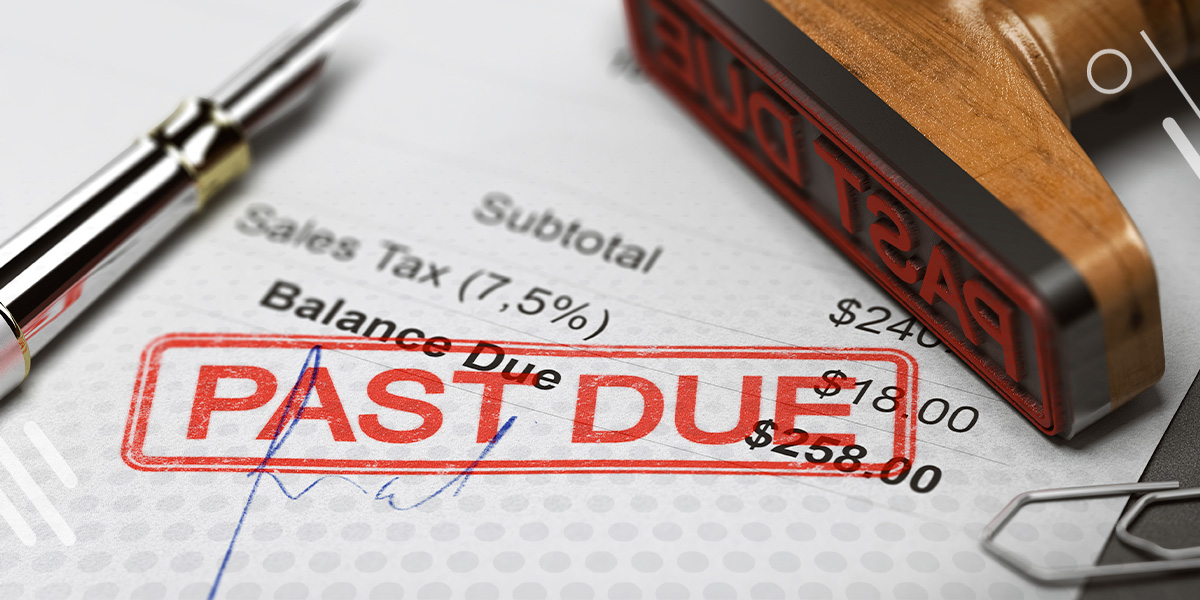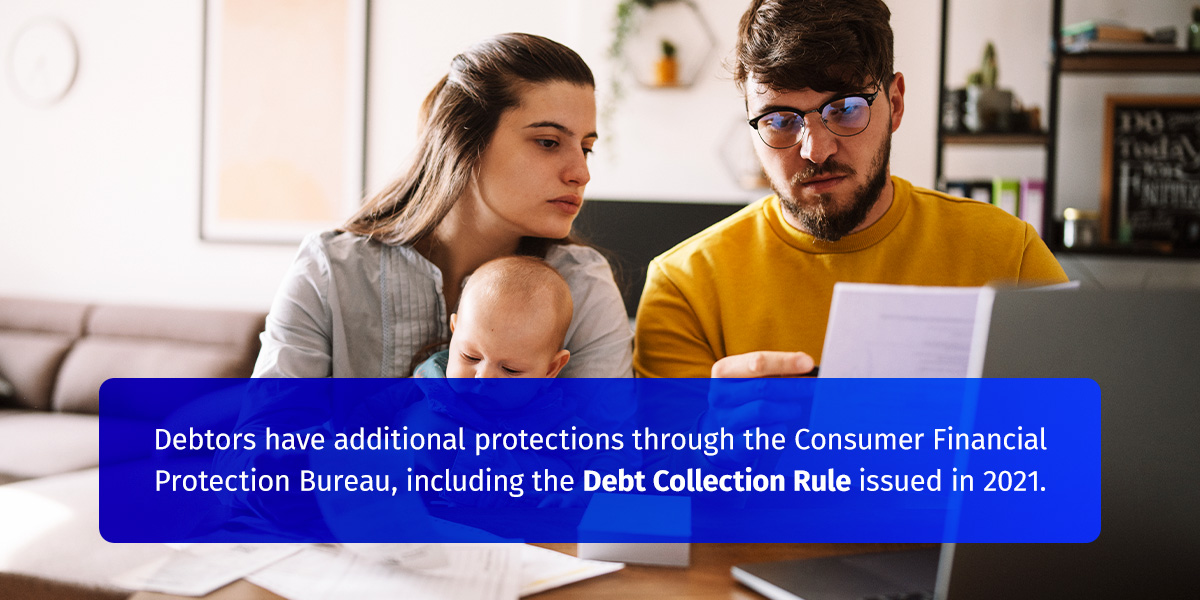- New Customer Inquiries (866) 551-4684
- Customer Service (214) 387-8068
- Make A Payment (866) 558-3328
- Client Portal
- Consumer Support

The Oklahoma debt collection industry is subject to stringent federal and state laws. Debt collection agencies must comply with these laws to avoid adverse legal implications.
This guide addresses the federal and state debt collection laws in Oklahoma, including the Fair Debt Collection Practices Act, the Consumer Financial Protection Bureau’s Debt Collection Rule and the state’s statute of limitations.
Federal and state laws govern debt collection in Oklahoma, including the Fair Debt Collection Practices Act (FDCPA) and the Oklahoma statute of limitations for debt collection. Another essential legal framework is the Consumer Financial Protection Bureau’s Debt Collection Rule. These laws cover broad areas, including communication, prohibited practices and debt verification.
Debt collection agencies or any other person acting on behalf of a creditor in relation to debt recovery must adhere to these rules, though the FDCPA does not apply to creditors collecting debt directly. As a result, partnering with trusted debt recovery companies with a track record of complying with the law is essential. Professional debt collection methods can add value to the creditor’s reputation besides improving their recovery rates.
The FDCPA is a federal law that safeguards debtors against deceptive, abusive and unfair debt collection practices. Debt collectors who violate the provisions under the law may grant the debtor the right to claim compensation. There are many prohibitions under the FDCPA, including but not limited to:
Below are other debt recovery provisions under the FDCPA:
Debt collectors must provide a written notice to the debtor within five days of their initial communication. The notice must contain specific details, including the creditor’s name, the debt amount and the debtor’s right to dispute the debt. Additionally, debtors have the right to request debt validation, which the creditor must provide.
Debtors can send a debt validation letter to debt collectors to assert their rights under the FDCPA. The letter requests debt collectors to show proof of debt owed, which may include a copy of the original contract or account statement. Debtors can also send a letter to the debt collector to stop contacting them for any other reason. This is particularly useful when the debtor disputes the debt. Once received, the debt collector must cease collection efforts until the debt has been verified.
The law prohibits debt collectors from engaging in abuse or harassment during debt recovery. Using obscenities, profanities or threats is unlawful. Plus, debtors have the right to request debt collectors to cease contacting them, except in specified circumstances, such as informing the debtor about the intention to take legal action.
Debt collection agencies are prohibited from making misleading or false statements to recover debt. Misleading or false statements include misrepresenting the amount owed, falsely representing their identity or threatening to sue when they have no right or intention to.

Debtors have additional protections through the Consumer Financial Protection Bureau, including the Debt Collection Rule issued in 2021. The rule clarifies how debt collectors can communicate and engage with debtors for debt recovery.
Among other things, debt collectors cannot contact debtors more than seven times within seven days or seven days after initially contacting them. Additionally, debt collectors can reach out to debtors via social media but must do so privately. The Debt Collection Rule augments the debtor’s rights under state and federal law, protecting them against unprofessional practices.
The statute of limitations for debt collection provides a period of time within which creditors or debt collection agencies acting on behalf of creditors must file a lawsuit to recover the money owed. Once the limitation period elapses, the creditor or their agents lose their right to institute legal proceedings against the debtor concerning that debt.
In Oklahoma, the limitation period depends on the type of debt. Written contracts and open accounts have a limitation period of five years, whereas oral contracts have a three-year limitation period. If the creditor obtains a judgment against the debtor, they must enforce it within five years.
Open accounts debts are the most common types of debts. They include credit card debts, debts on department store cards and lines of credit. With open accounts, the creditor keeps the available credit open in anticipation of future purchases, albeit with limits. Once the debtor makes the payment, the account is closed.
Written contracts are binding legal agreements in document form. Typically, the loan agreement contains vital information, such as the parties’ names, the amount, interest rate, payment terms and signatures. Written contracts provide clear evidence of the parties’ transactions, allowing the creditor to enforce their rights relatively easily.
Unlike written contracts, loan transactions arising through verbal agreements are usually undocumented. Oral contracts are also valid, although the terms of the agreement can be challenging to ascertain.
The limitation period begins when the creditor’s cause of action to sue for recovery accrues. A cause of action is the combination of facts that entitles a party to a legal action. Within the context of debt recovery, that is typically the date the debtor makes the last payment. Once a new payment is made, it resets the clock. The clock may reset if the parties conclude a debt repayment contract, even after the limitation period.
Oklahoma has strict debt-collection laws, which all debt-collection agencies must comply with. As a result, it’s crucial to work with trusted, professional debt recovery agencies with experience in the industry.
Southwest Recovery Services, LLC provides third-party debt collection services to businesses in Oklahoma and beyond. We operate in an ethical and professional manner, adhering to all federal and state laws and regulations governing the industry. We have years of experience providing practical solutions.
You can learn more about our service by contacting us now!


We make it fast and easy to refer past due and delinquent accounts to our professional recovery agents. You decide the range on what you will accept on each case, and you ONLY pay a percentage of what we actually collect to resolve the case. Ready to get started, or want to learn more? Fill out this form and a dedicate account manager will call you to get started.